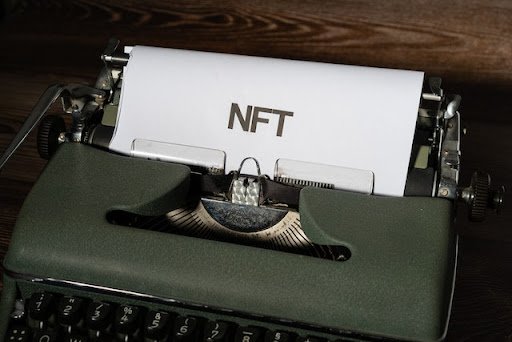I. Introduction
A. Definition of NFT and NFT marketplaces
NFT, or non-fungible token, is a unique digital asset that represents ownership of a specific item such as a piece of art, collectible, or even a tweet. NFT marketplaces are platforms that allow for the creation, buying, selling, and trading of NFTs.
B. Overview of different types of NFT marketplaces
NFT marketplaces come in a variety of forms, including decentralized, centralized, and hybrid marketplaces. Each type of marketplace offers different benefits and is suited to different use cases.
II. Type 1: Decentralized NFT Marketplaces
A. Explanation of decentralized NFT marketplaces
Decentralized NFT minting website development can run on a decentralized network, such as a blockchain, and operate without a central authority.
B. Benefits of decentralized NFT marketplaces
One of the biggest benefits of decentralized NFT marketplaces is their security. Because they operate on a decentralized network, there is no central point of failure, making them more resistant to hacking and other security threats. Additionally, decentralized marketplaces allow for full control and ownership of NFTs by the buyer or seller, as they are stored on the blockchain and cannot be tampered with or altered.
C. Use cases of decentralized NFT marketplaces
Decentralized NFT marketplaces are ideal for individuals and organizations looking to buy, sell, or trade NFTs securely and transparently. They are also suitable for those who prioritize ownership and control over their NFTs.
III. Type 2: Centralized NFT Marketplaces
A. Explanation of centralized NFT marketplaces
Centralized NFT marketplaces operate on a centralized server and are managed by a central authority. They function similarly to traditional e-commerce platforms, with buyers and sellers interacting through a central platform.
B. Benefits of centralized NFT marketplaces
Centralized NFT marketplaces offer several benefits, including easier navigation and a more user-friendly experience. They also often offer additional features such as advanced search functions and the ability to track NFT transactions and ownership history. Additionally, centralized NFT marketplaces can offer faster transaction times compared to decentralized marketplaces, as they do not rely on the speed and scalability of a decentralized network.
C. Use cases of centralized NFT marketplaces
Centralized NFT marketplaces are ideal for individuals and organizations looking for a more streamlined and user-friendly experience when buying, selling, or trading NFTs. They are also well-suited for those who prioritize speed and convenience over ownership and control of their NFTs.
IV. Type 3: Hybrid NFT Marketplaces
A. Explanation of hybrid NFT marketplaces
Hybrid NFT marketplaces combine elements of both decentralized and centralized marketplaces, offering the benefits of both. Transactions are recorded on a decentralized network, providing the security and transparency of a decentralized marketplace, while the user interface and additional features are provided by a central authority.
B. Benefits of hybrid NFT marketplaces
Hybrid NFT marketplaces offer the security and transparency of a decentralized marketplace, combined with the ease of use and additional features of a centralized marketplace. They also offer a more flexible and scalable solution for individuals and organizations looking to buy, sell, or trade NFTs.
C. Use cases of hybrid NFT marketplaces
Hybrid NFT marketplaces are ideal for individuals and organizations looking for a balance between security, ease of use, and additional features when buying, selling, or trading NFTs. They are also well-suited for those who are looking for a solution that provides the best of both worlds, combining the security and transparency of a decentralized marketplace with the ease of use and additional features of a centralized marketplace.
V. Comparison of Different Types of NFT Marketplaces
A. Comparison of features
Decentralized NFT marketplaces offer security and transparency, while centralized NFT marketplaces offer ease of use and additional features. Hybrid NFT marketplaces offer a balance of both security and ease of use, while also providing additional features.
B. Comparison of benefits
Decentralized NFT marketplaces offer full control and ownership of NFTs, while centralized NFT marketplaces offer a user-friendly experience and faster transaction times. Hybrid NFT marketplaces offer a balance of security, ease of use, and additional features.
C. Comparison of use cases
Decentralized NFT marketplaces are ideal for those who prioritize security and control, while centralized NFT marketplaces are best for those who prioritize ease of use and additional features. Hybrid NFT marketplaces are best for those who are looking for a balance of both security and ease of use, as well as additional features.
VI. Conclusion
A. Summary of different types of NFT marketplaces
In conclusion, NFT marketplaces come in a variety of forms, including decentralized, centralized, and hybrid marketplaces. Each type of marketplace offers different benefits and is suited to different use cases.
B. Importance of choosing the right NFT marketplace
Choosing the right White Label NFT marketplace development is crucial for individuals and organizations looking to buy, sell, or trade NFTs. It is important to consider factors such as security, ease of use, and additional features when selecting a marketplace.
C. Final thoughts
As the NFT market continues to grow, it is likely that we will see further innovation and development in the NFT marketplace space. It will be exciting to see how new marketplaces emerge and how they change the landscape of the NFT market. In the meantime, it is essential to choose the right marketplace to ensure that you have the best possible experience when buying, selling, or trading NFTs.






